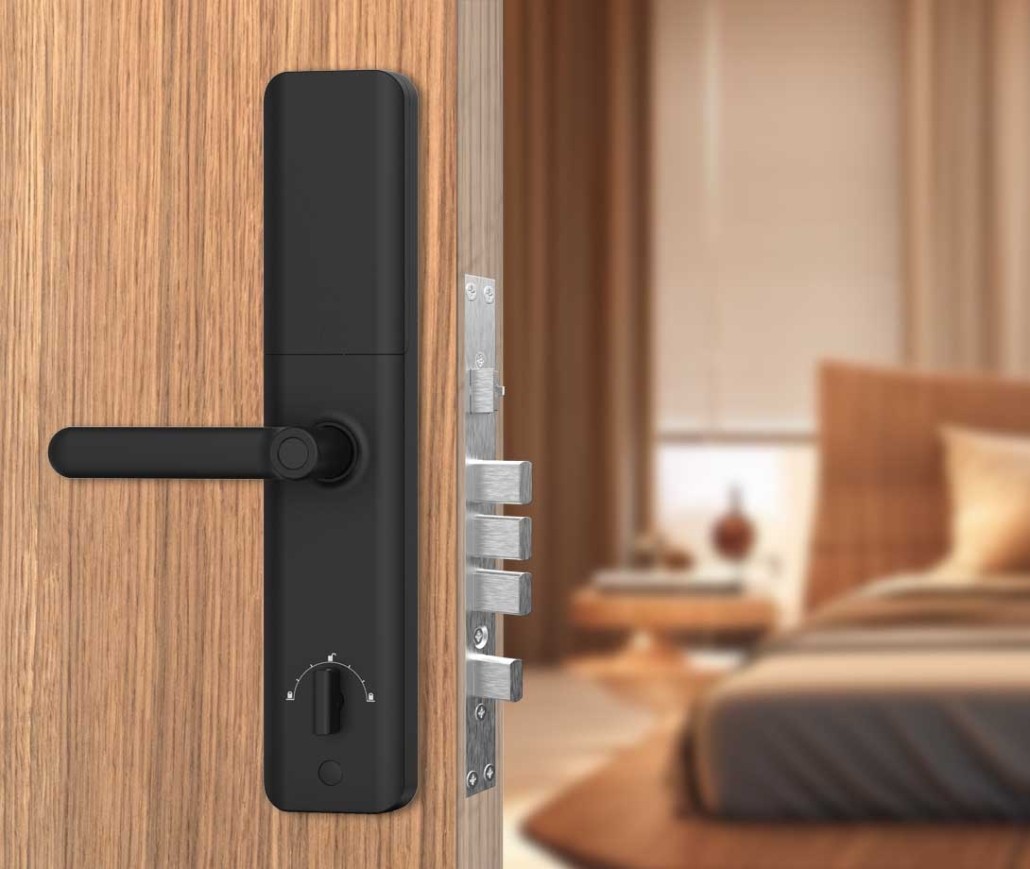In today’s fast-paced world, convenience and security are top priorities for American homeowners. Traditional locks and keys are slowly being replaced by smarter, more efficient alternatives—one of the most popular being RFID door locks.
If you’re considering upgrading your home security or simply curious about how RFID locks work, this guide will explain everything you need to know. We’ll cover:
- What RFID door locks are
- How they work
- Their benefits over traditional locks
- Potential drawbacks
- Best use cases for American homes and businesses
By the end, you’ll have a clear understanding of whether an RFID lock is the right choice for your front door, office, or rental property.
1. What Is an RFID Door Lock?
RFID (Radio-Frequency Identification) door locks are keyless entry systems that use radio waves to authenticate users. Instead of a physical key, these locks rely on RFID cards, fobs, or even smartphones to grant access.
How Do They Work?
RFID locks consist of two main components:
- The RFID Reader (Installed on the Door) – This emits a low-power radio signal.
- The RFID Tag (Key Card, Fob, or Smartphone) – When brought near the reader, the tag transmits a unique identifier. If the lock recognizes the code, it unlocks.
This technology is similar to contactless credit cards, hotel key cards, and even pet microchips—just applied to door security.
2. How Are RFID Locks Different from Traditional Locks?
| Feature | Traditional Key Locks | RFID Door Locks |
|---|---|---|
| Access Method | Physical key | RFID card, fob, or smartphone |
| Key Duplication Risk | High (Anyone can copy a key) | Low (Requires authorized programming) |
| Convenience | Must carry keys | Tap-to-open, no digging for keys |
| Remote Access | No | Some models allow smartphone control |
| Temporary Access | Hard to manage (Need to make copies) | Easy (Assign temporary digital keys) |
RFID vs. Smart Locks
While both are keyless, smart locks often use Wi-Fi/Bluetooth and require a smartphone app. RFID locks are simpler—no app needed, just a quick tap.
3. Benefits of RFID Door Locks for American Homes
No More Lost Keys
How many times have you been locked out because you misplaced your keys? With RFID locks, you can use a key card, fob, or even your phone—no more frantic searches.
Enhanced Security
- No pickable locks – Traditional locks can be picked or bumped; RFID locks are much harder to bypass.
- No unauthorized duplicates – Unlike keys, RFID tags can’t be easily copied without permission.
Great for Rentals & Airbnb Hosts
- No need to change locks between tenants – Just reprogram RFID cards.
- Temporary access for guests – Assign time-limited access without handing out physical keys.
Faster Entry (No Fumbling for Keys)
Imagine carrying groceries and just tapping your wristband to unlock the door—RFID makes it possible.
Works During Power Outages
Most RFID locks have battery backups, so you won’t be locked out if the power goes out.
4. Potential Drawbacks of RFID Locks
Risk of Card/Fob Loss
If someone steals your RFID card, they can access your home—just like a physical key. However, you can deactivate lost cards instantly, unlike traditional keys.
Limited Smart Features (Compared to Wi-Fi Locks)
Most RFID locks don’t offer remote unlocking via an app—you need to be at the door. If you want full smart home integration, consider a hybrid RFID + Wi-Fi lock.
Slightly Higher Cost
While basic RFID locks start around
100∗∗,high−endmodelscancost∗∗300+
. Still, many homeowners find the convenience worth the investment.
5. Best Uses for RFID Locks in the U.S.
Front Door & Home Entry
Perfect for families who want keyless convenience without relying on smartphone apps.
Offices & Businesses
Many U.S. companies use RFID locks to track employee access and restrict entry to sensitive areas.
Rental Properties & Airbnb
Landlords can remotely manage access without physical key exchanges.
Vacation Homes & Cabins
No more hiding keys under the mat—just give guests an RFID card when they arrive.
6. Are RFID Locks Right for You?
Choose RFID If You Want:
Keyless convenience (No more lost keys)
Better security than traditional locks
Easy access management for guests/tenants
Consider a Smart Lock Instead If You Want:
Remote control via smartphone
Integration with Alexa/Google Home
Final Thoughts
RFID door locks offer a secure, convenient, and modern alternative to traditional keys. They’re especially popular among U.S. homeowners, landlords, and business owners who want hassle-free access control.
If you’re tired of carrying keys or need a better way to manage entry for guests, an RFID lock could be the perfect upgrade for your home.
Would you switch to an RFID door lock? Let us know in the comments!
Post time: Apr-30-2025


